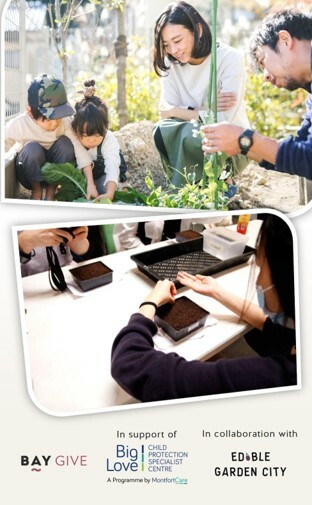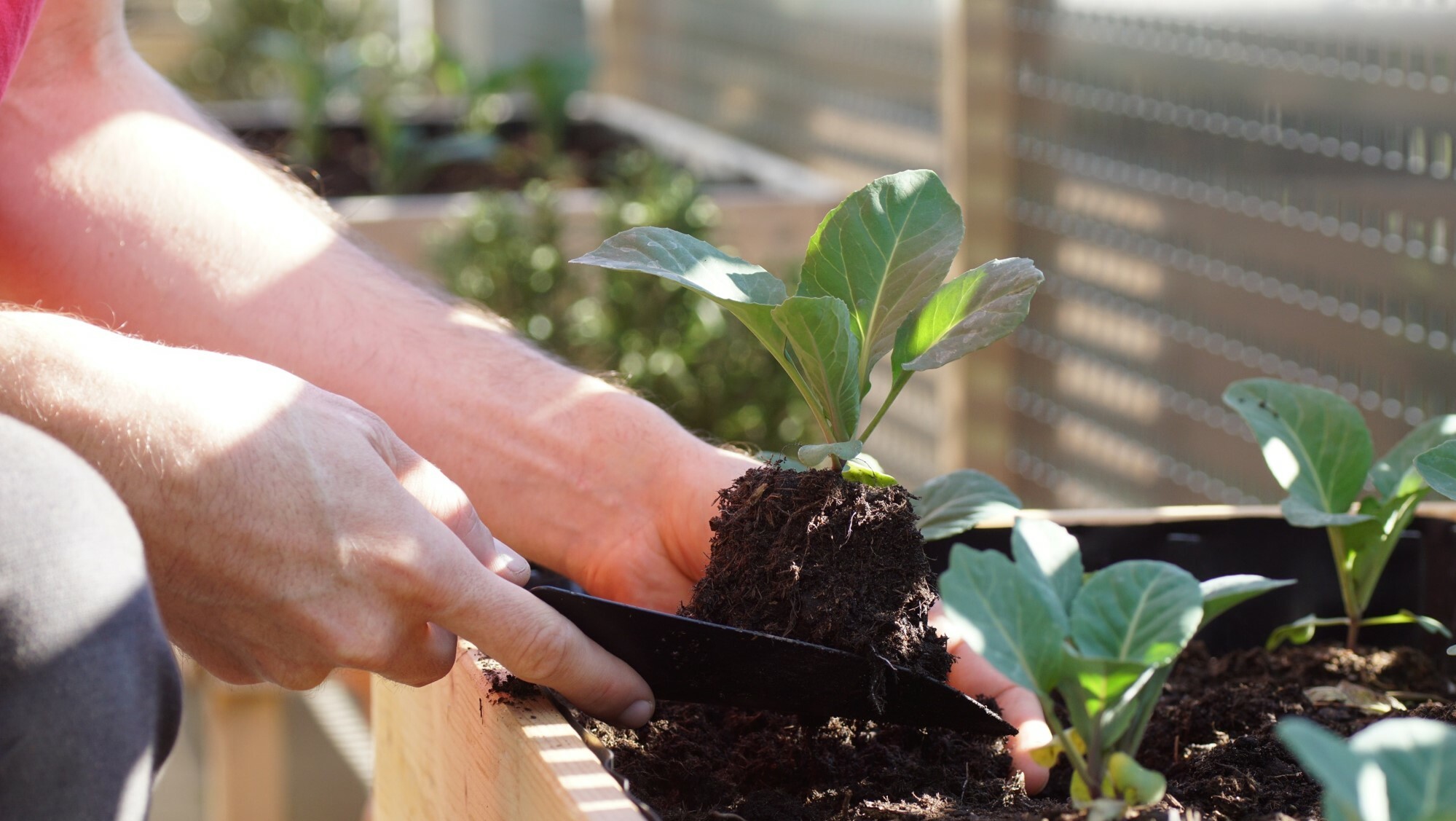
Cover Story

Urban farming in Singapore tends to revolve around plans for the island to become more food-resilient through the holistic use of design, engineering, geography and technology. This is not just a task created for the Government and organisations. People play a part in this journey towards resiliency as well. We explore how to get involved with urban farming on your own terms with our eco partner, Edible Garden City.
_______________________________________________________________________________
In land-scarce Singapore, URA imagines a transformation in farming, where physical boundaries are lifted and farms can be located across different parts of the city. This can be on rooftops, in parks and even on viaducts. To demonstrate the concept, sovereign wealth fund GIC ran a campaign in January 2022 to raise the profile of urban farms in Singapore by growing vegetables such as kailan, butterhead lettuce and Chinese cabbage on top of seven bus stops islandwide.
The Singapore Food Agency (SFA) explains the root of urban farming. We are a nation heavily dependent on importing our food supplies. In the event of a disruption such as the pandemic or cross border issues, our food security can be challenged. This requires us to explore means of reducing our reliance on food imports. The ‘30 by 30’ plan championed by SFA looks to “...build up our agri-food industry’s capability and capacity to produce 30% of our nutritional needs locally and sustainably by 2030.”
In August 2022, GroGrace, a beneficiary of SFA’s $50 million Agriculture Productivity Fund (APF) was launched by Urban Farming Partners Singapore (UFPSG). This is a collaboration between Singapore and the Netherlands to provide holistic solutions to the indoor farming industry. Senior Minister of State for Sustainability and the Environment Amy Khor shared at the launch event that the APF looks to “...help farmers boost yields and increase production capabilities to meet Singapore's 30 by 30 goal…”.
A local organisation - Edible Garden City (EGC) founded in 2012 - is one of the first urban farming organisations that looks to contribute to Singapore’s food security from a grassroots level. EGC is a social enterprise dedicated to creating social change through community-centric agriculture. The organisation is a champion of the "Grow Your Own Food" movement in Singapore, empowering home gardeners and promoting urban farming in Singapore. EGC has designed and built over 260 small produce farms for restaurants, hotels, schools and residences in Singapore.
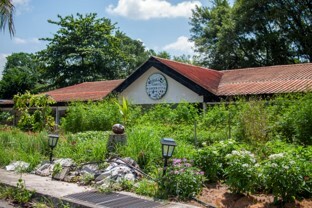
We had a discussion with Sarah Rodriguez, EGC’s head of marketing about 30 by 30, what is community-centric agriculture and some places to start your farming journey.
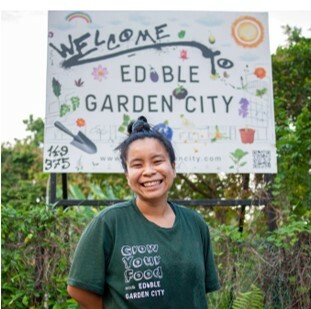
Q: What are some factors that are driving this trend from your perspective?
Sarah Rodriguez (SR): Singapore’s 30 by 30 ambition is a realistic take on what is required to grow our food security.
During the COVID-19 pandemic and shortly as we emerged into recovery, challenges to our food security - such as the recent news about vegetable farms in Malaysia suffering from reduced yield due to heavy rainfall - have been more distinct. There is a growing sense that we are more vulnerable in Singapore, given our reliance on food imports.
At EGC, we hope to not only contribute to food resilience through food production and encouraging Singaporeans to grow our own food, we also encourage Singaporeans to re-examine our food habits and consumer culture. For instance, we import many varieties that are temperate in nature and that fare well in our climate.
But if we relook at our diet and eat more local and endemic varieties, taking cue from our heritage foods that can be grown easily in our climate, we would be able to more efficiently feed ourselves without over relying on import or agritech. Spaces that are currently under-utilised such as rooftop spaces or ornamental gardens, could be activated into productive food gardens.
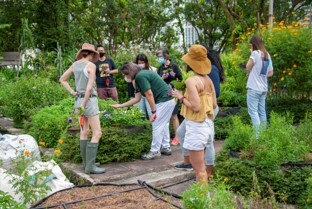
Q: How does EGC define themselves within the urban farming community, and how does the community-centric agriculture approach fit into our Singapore context?
SR: We champion the "Grow Your Own Food" movement in Singapore, empowering home gardeners and promoting urban farming in our city. Our grounding philosophy is that growing our own food connects us with nature and cultivates a sense of community.
Our closed-loop farming model produces fresh and nutritious vegetables for chefs and home cooks, supplying to more than 70 restaurants a week. We also conduct edible landscaping, and have designed and built more than 260 edible gardens across Singapore, in schools, homes, shopping malls and offices. Additionally, we teach gardening skills and organise nature-based activities for all ages and backgrounds, including as a way to uplift marginalised communities.
We are strong proponents of the community, social and personal benefits of gardening, beyond just strengthening food security. There is an element of personal wellness that comes from growing our own food such as physical activity, socialisation, intergenerational bonding, and mental wellness.
There is also the opportunity to explore urban farms as spaces that are not only food productive, but that can also provide therapeutic horticulture services and employment opportunities for marginalised communities.
Q: What is Edible Garden City doing to help drive/support urban farming and community-centric agriculture?
SR: We believe in the potential for farming to bring about social and environmental good, and to use farming as a vehicle for greater inclusivity.
Through edible landscaping, we have activated more than 260 under-utilised areas in schools, homes and businesses into green community spaces. These help Singaporeans get involved with urban farming in a way that is sustainable, accessible and enjoyable for them.
For example, an organisation could learn about sustainability through a gardening team bonding workshop, a young person who is waiting to start university could volunteer with us, or an elderly person looking for a new hobby could take a SkillsFuture-credit claimable class to learn gardening skills.
Not interested in gardening at all? You can support local farmers by subscribing to our Citizen Box - a weekly veggie box where home cooks get to enjoy locally-grown and pesticide-free produce.
We want to lower the barrier of entry for Singaporeans to get involved in urban farming, and encourage everyone to take part in the movement.
_______________________________________________________________________________
As part of our BayGive social responsibility initiative, By The Bay is organising an urban farm tour at Edible Garden City for the children from Montfort Care (Big Love Child Protection Specialist Centre) on Friday, 25 November 2022.
We are calling for participation from our By The Bay community to serve as volunteers to spend a day with the children where they will learn about the importance of food sustainability and resilience, as well as growing their own microgreens through a workshop.
Registration closes on 14 October 2022 and the details are available via this link.
